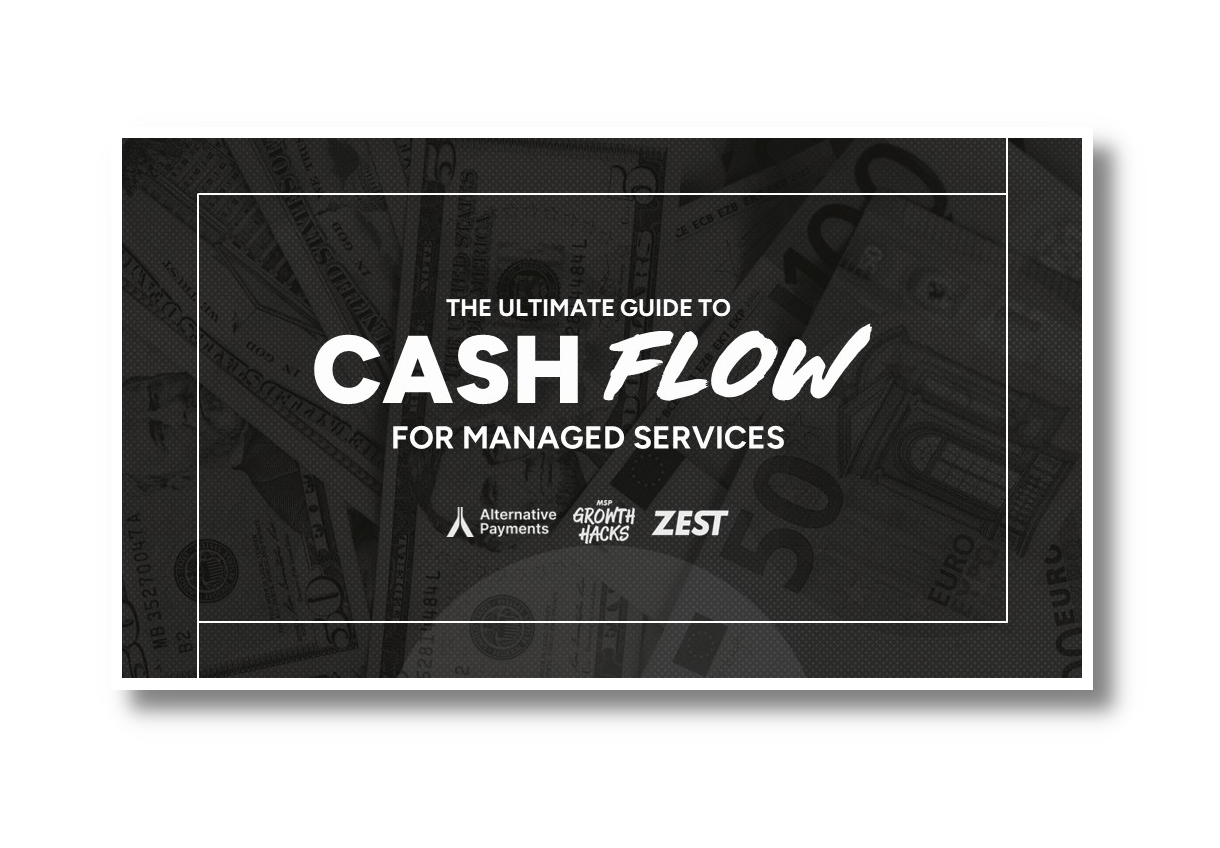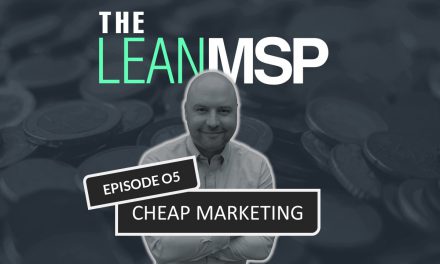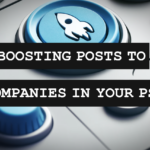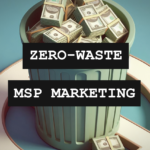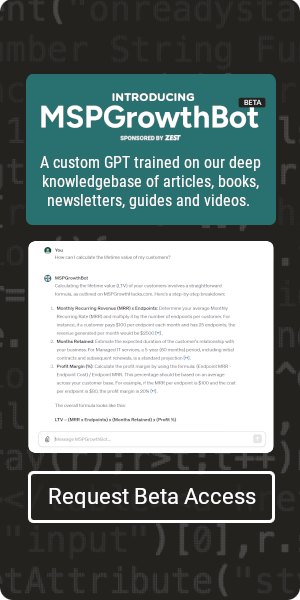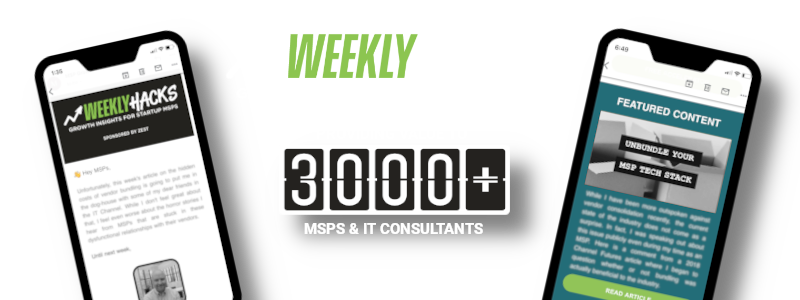Over the past week, I’ve been doing a deep dive into the world of Quora for Business. While this self-serve ad platform is not new, it’s recent feature updates have been getting some love lately within B2B marketing circles. To my chagrin, what I once brushed off as a “junk placement,” may be one of the best-value direct response placement opportunities going for MSPs right now. Here is why:
MSPs Prefer Direct Response
While this is more of an observation than a benefit, I have always found that MSPs gravitate immediately toward direct response tactics. Google search ads, cold emails, direct mailers, and cold calling are the usual suspects, because most MSPs prefer to invest mostly in bottom-of-funnel direct response opportunities rather than top-of-funnel brand building. While this isn’t my approach, I never blame anyone for thinking this way. It’s natural to want to take the shortest distance to the result, and that’s what direct response marketing is.
The reason that this is relevant to this conversation is that I very much put Quora ads into this category. While the platform does have the capability of retargeting and creating impression-heavy campaigns across the entire platform, it is probably best used in the way that it was first intended (sponsoring answers to targeted questions). This makes sense to MSPs and it’s very obvious to them how this could potentially net a positive result. This is why I believe this entire concept is “MSP-friendly,” which is important for adoption.
Buyer’s Intent Is Evident
The “question and answer” style of the content on Quora is perfect to target users with highly contextual ads at exactly the time they are researching a solution. For example, a quick search led me to the question: how do cloud services help small businesses? While I don’t know exactly who posed that question (Quora doesn’t publish this, as topics are populated in a wiki-style) I can predict that anyone discovering that page will have some level of interest in purchasing cloud services and is performing research for their decision.
This reminds me of one of my best performing placements I’ve ever had in my past life as a PPC Ad Consultant. I was managing a campaign for a Patent Law Firm and discovered that the site WikiHow.com had some really great instructional articles on “how to file patents.” I created a campaign targeting only these 5-10 articles and while the traffic was not abundant, it had the lowest average lead cost compared to any of the campaigns I launched for that client. I always thought this was odd, since most of the WikiHow traffic came from Google search, and I was already running search ads for the same search terms represented in the articles. Despite my confusion, I couldn’t complain. My click costs on the WikiHow placement were less than a third of what they were on Google search ads. Quora presents almost this identical opportunity, but with the ability to scale.
The Ultimate Guide To Cash Flow For Managed Services
Sponsored by Alternative Payments & Zest
Quora’s Traffic Composition
To understand the opportunity here, we have to first understand where this traffic is coming from and who these users are. According to this site, 78.07% of Quora traffic is from search engines. This is definitely believable, since the only time I personally have found myself on their site was through a Google search. After thinking about this more, I performed a quick test. I went to Google and punched in 10 different “questions” that I thought a Small Business Owner might ask and Quora ranked on the first page in 7 out of the 10 results.
As for the demographics of the users, they tend to run on the younger side. 78% of users on Quora are under the ages of 34 and only 2% of users are between 34-55. While many MSPs would be turned off by the fact that their typical buyers fall within that small minority, this to me says more about the potential of the platform than it’s current demo. These younger users will get older and at the same time user-growth will increase in those slow-to-adopt demos. This will cause those 34-55 numbers to increase over time. If the numbers were opposite, I would actually be more pessimistic. If the majority of the platform’s users were over 35 then it would mean they are not appealing to new (younger) users and the party would be over before it even started.
Google Ads Are Expensive
The reason that there is an appetite for Quora ads is because Google Search Ads are so darn expensive. Average click costs seem to only go up over time and there is never a relief in sight. I personally have an opinion that Google also has an interface problem. For the last few decades, I subconsciously trained myself to skip over those first four ad listings and find the best organic result. This is something that is wired in me now and it’s almost as though I couldn’t click a Google ad if I tried to.
I suspect many other users have or will develop this same behavior over time (or some will use ad-blockers), which means that these ads will lose effectiveness if they don’t do something drastic. If this observation is correct, then I am sure Google is way ahead of it (which might be why we see more rich ad types available on the platform). While this also is what creates opportunity for ad platforms such as Quora, there is always the chance that Google realizes what’s happening and finds a way to reduce the amount of organic traffic that it feeds them. This would suffocate Quora’s impression inventory and make costs go significantly higher. I don’t suspect this would happen, but the fact that it could is enough to make me hedge any bet on Quora I might make.
The Ultimate Guide To Cash Flow For Managed Services
Sponsored by Alternative Payments & Zest
Target By Questions / Topics / Audiences
Now, let’s finally dig into the details of what Quora for Business can offer. There are a few different ways to target traffic and they have them grouped by levels of intent. Here is the simplest definition I could think of for each:
- Questions – You can target specific questions, which are basically pages on the platform. You can segment this by only showing your ad on that specific page (the most intent), or you can show your ad on any page, but to users that have looked at that targeted page over a 30 day period (less intent).
- Topics – If you have exhausted your efforts of manually finding questions to target, you can try “topics” instead. These are essentially the categories where large quantities of questions live. Much like questions, you can segment this by showing your ad only on pages that are relevant to a topic or anywhere to users that have visited a page that belongs to a topic.
- Audiences – Similar to most other PPC platforms, Quora allows you to bring your own audience to target. This can either be uploaded via a list, or a retargeting audience that is built using their pixel. This might be useful if you are looking for ways to expand your retargeting, but you would have to have a pretty large list or a lot of web traffic to get any real traction with this.
In my experience running a few test campaigns, I felt like the question-based targeting would be most effective, but the campaigns would be a lot of work to create. Each single question that I thought would be relevant for an MSP only yields a few hundred impressions each (estimated), so you would have to dedicate time or hire a virtual assistant to research the questions for you and look to use somewhere between 50-100 questions per campaign. Topics on the other hand were the opposite of this. Many of them were quite broad and had the potential to produce a lot of impressions. My recommendation would be to split my budget testing both and then eventually shifting more of the budget where it is most effective.
Supports Lead-Gen Ads
I have to be honest, I wasn’t all that excited about this platform until I discovered the “lead-gen ads.” I have always loved using these on both LinkedIn and Facebook and I think that Quora could even be a better placement for this particular ad type. Let me explain how this works:
- A Quora user lands on a question page and looks for an answer. We will use our previous example of “ How do cloud services help small businesses?.”
- Between the question and answer is a native ad block (that almost looks like an answer), which contains the ad you launched just for this particular series of questions. Your ad is for a “Small Business Owner’s Roadmap To The Cloud.” This is a lead magnet that you developed just for this purpose.
- When a user sees your hyper-relevant ad, they click it. This opens up a form that prefills in their email address. If they aren’t logged in, they will be asked to enter it. After they click submit, you are able to capture the lead without them ever leaving Quora.
- As for the user, you can then send them directly to the PDF or any other place that is appropriate for your offer. You can also use this to trigger a drip email campaign asking to schedule a free cloud consultation or discovery call after they’ve downloaded the guide.
The reason why I believe Quora is the perfect place for this type of ad is because rarely do you get the combination of intent and delivery all in one place. Lead form ads have proven to work at a high rate even in social feeds when users are not even looking for answers. Now put that same ability to immediately deliver value in front of someone actively looking for the content you are providing and you’ve got a pretty powerful opportunity.
So, are MSPs scaling to the moon right now using Quora ads? No, definitely not. But could moving a portion of the budget away from Google Ads and into Quora for Business prove to be a better value overall? Yes, I wholeheartedly believe it would be. In marketing, we only get so many opportunities to be early and acquire customers at a “discount”. Quora for Business isn’t new, but it’s demographics on-paper have done little to attract B2B Marketers up until this point. That tide is now about to turn and the prices will only go up as it does.

SPONSORED BY ZEST

